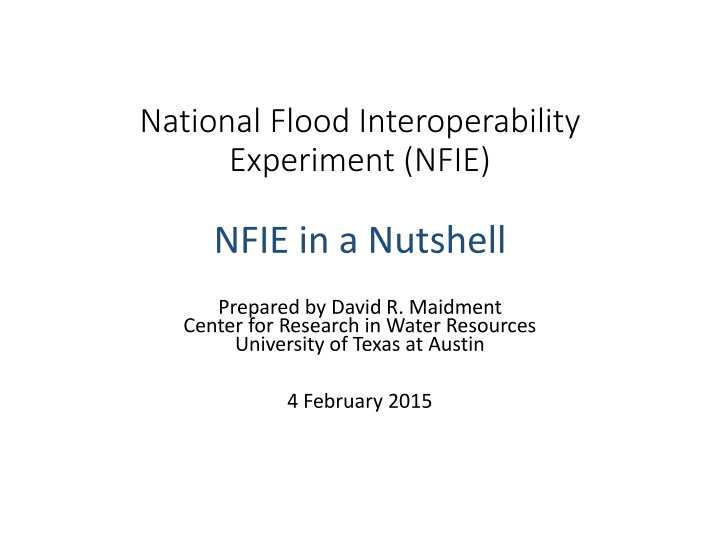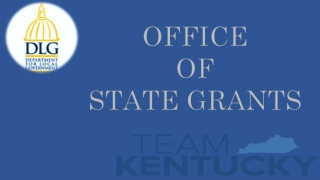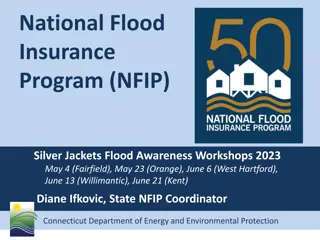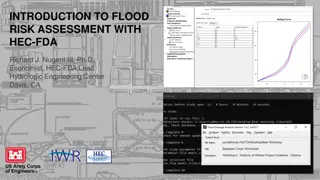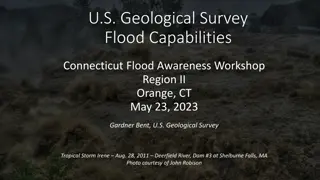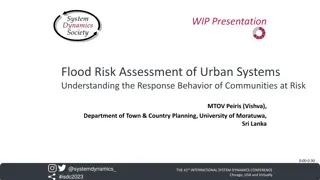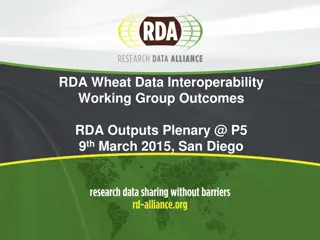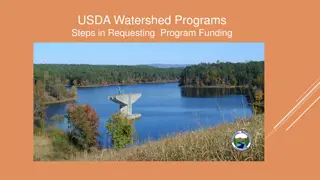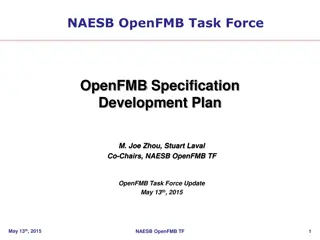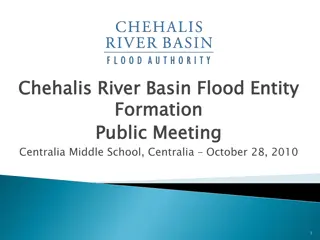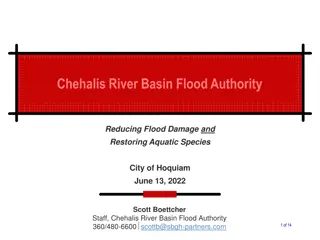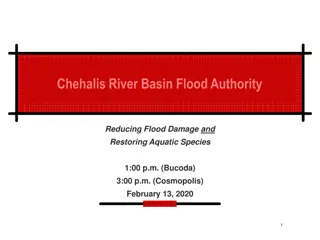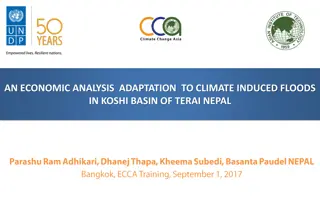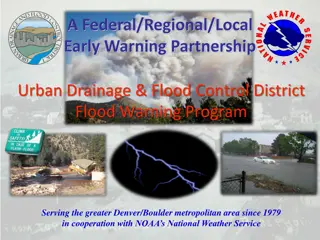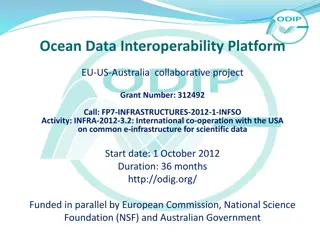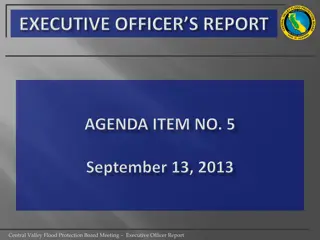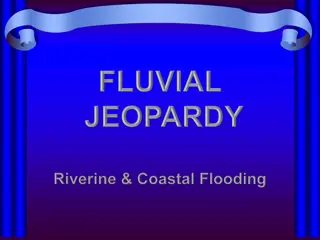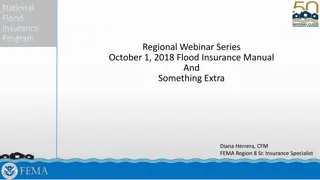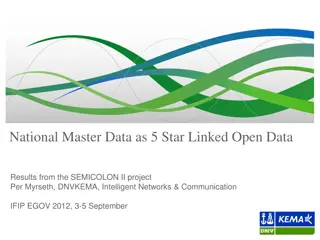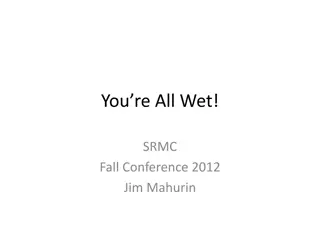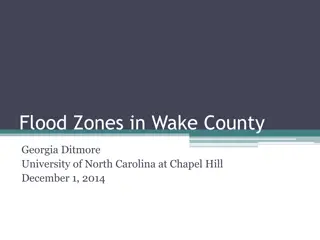National Flood Interoperability Experiment: NFIE in a Nutshell
This document provides an overview of the National Flood Interoperability Experiment (NFIE) prepared by David R. Maidment from the Center for Research in Water Resources at the University of Texas at Austin on February 4, 2015. The NFIE aims to enhance interoperability in flood-related data and systems to improve flood response and management. It outlines key aspects of the experiment, its objectives, and significance in addressing flood challenges.
Download Presentation

Please find below an Image/Link to download the presentation.
The content on the website is provided AS IS for your information and personal use only. It may not be sold, licensed, or shared on other websites without obtaining consent from the author.If you encounter any issues during the download, it is possible that the publisher has removed the file from their server.
You are allowed to download the files provided on this website for personal or commercial use, subject to the condition that they are used lawfully. All files are the property of their respective owners.
The content on the website is provided AS IS for your information and personal use only. It may not be sold, licensed, or shared on other websites without obtaining consent from the author.
E N D
Presentation Transcript
National Flood Interoperability Experiment (NFIE) NFIE in a Nutshell Prepared by David R. Maidment Center for Research in Water Resources University of Texas at Austin 4 February 2015
The Opportunity New National Water Center established on the Tuscaloosa campus of University of Alabama by the National Weather Service and federal agency partners Has a mission to assess hydrology in a new way at the continental scale for the United State
Partnership with the academic community National Weather Service has joined with CUAHSI to conduct a one-year National Flood Interoperability Experiment (NFIE) Includes a Summer Institute for students and faculty at the National Water Center, June 1 to July 17, 2015
Goal of the Experiment Close the gap between National Flood Forecasting and Local Emergency Response Demonstrate forecasting of flood impacts at stream and street level Weather and Hydrology National National Weather Service and federal agencies National Water Center River Flooding and Emergency Response Local, State and Regional Agencies Citizens Local
Assumptions High spatial resolution hydrologic modeling at continental scale Built upon NFIE-Geo: A national geospatial framework for hydrology Continental landscape divided into 2.67 million local catchments, each containing a single stream reach Stream reaches connect to form a national stream network 2.67 million catchments Average area 3 km2 Average reach length 2 km
NFIE Conceptual Framework NFIE-Geo: National geospatial framework for hydrology NFIE-Response: Wide area planning for flood emergency response NFIE-Hydro: National high spatial resolution hydrologic forecasting NFIE-River: River channel information and real-time flood inundation mapping NFIE-Services: Web services for flood information
NFIE-Geo for a county. County subset of national geospatial data layers Map courtesy of Cyndi Castro UT Austin http://www.caee.utexas.edu/prof/maidment/CE397Flood/Assignment2/NFIEGeo.pdf
NFIE-Hydro Forecasting Model Weather model and forecasts Probabilistic flood forecasts Catchment-level forecasts Weather Precipitation Streamflow Runoff Land-Atmosphere Model Channel flow routing (for continental US)
Flood risk zones Each catchment has a flood hazard zone defined from FEMA flood data Probabilistic forecast from NFIE- Hydro defines flood risk Color the zones according to risk
More comprehensive solution NFIE-River: Dynamic flood modeling, forecasting and inundation mapping in space and time Requires LIDAR terrain data so can only be done for particular regions North Carolina Floodplain Mapping Program Iowa Flood Information System
Transformative for the nation Forecasts produced by Current system 3600 locations NFIE system 2.67 million locations New Information to help emergency managers save lives and keep people safe 700 times more Current Proposed
Flood Emergency Response NFIE-Response: Work with the first response community to define flood strategy and tactics https://www.youtube.com/watch?v=ympaR6YUxiA&feature=youtube
